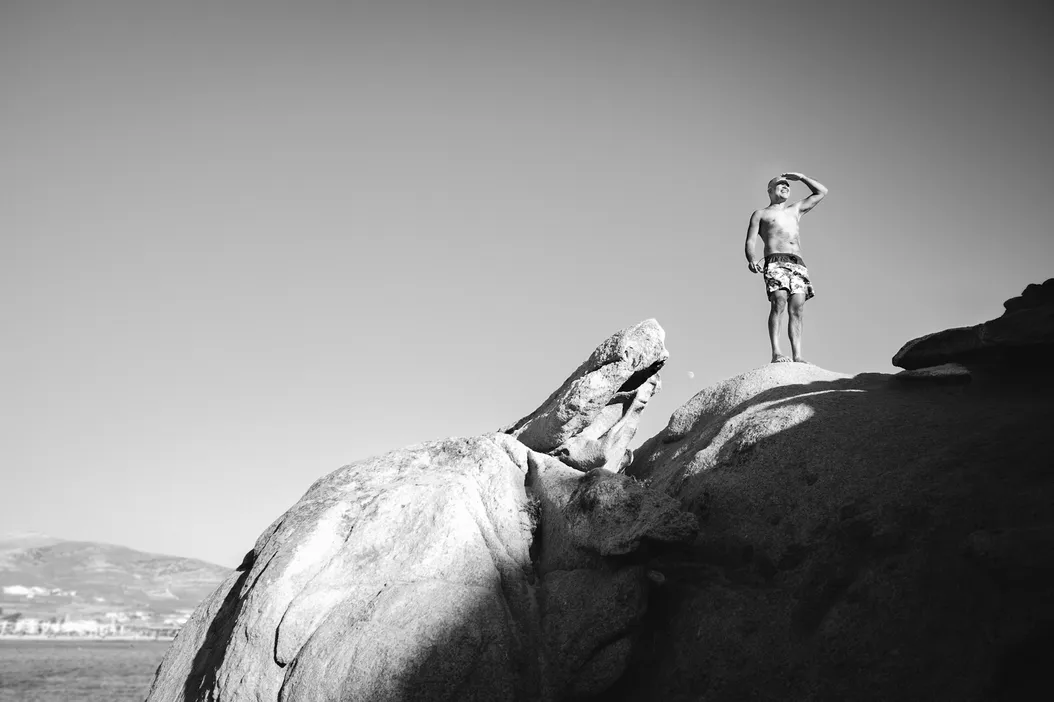Two red lines
I first tested positive for COVID last Saturday.
In two and a half years of pandemic, I've had many close calls. But I always managed to wriggle away unscathed, thanks to masking, distancing, planning. "You're still a COVID virgin," friends would say.
But all the measures proved no match for my daughter starting kindergarten. COVID spread through the family and knocked each of us out.
I'm sitting here feverish, having trouble sleeping, and can't smell anything. Not even winter savory oil from Wild Herbs of Crete. We've been lucky, though. This virus sucks, but it's a shadow of what it was.
But still, as a result this week I don't have the head for an article. So I hope you'll allow me a meta-post: an invitation for you to go through the archives. (Almost?) all the posts are evergreen, and I update them as I go. There will definitely be stuff to discover there.
But it wouldn't be fun if I just gave you a link to the site and say 'on yer way then'. So I went through the 70 or so posts I've written for Subvrt, tried to organise them, and made a selection.
Let's go.

How-to's
The 'how-to' posts are guides to activism; recipes either for glorious impact, or failure and all the valuable lessons that come with it.

First, there are how-to's on basic management, which is what so many activist campaigns are lacking. Check out building a team from scratch (and hunting for the right profiles); taking group decisions, and managing for meltdowns (and related: avoiding your campaigns imploding).
Then there are posts on communications skills. Working with media is worth reading (I was part of an industry that is – well, was – built on this). But don't miss the subtle stuff that PR trainings will never give you: hacking media biases, and leveraging typography.
You can find more campaigning-specific guides too, like on reaching the working class, targeting for your cause (hint: it's about how you make them feel!), and growing your support. And of course, the dull but effective art of lobbying.

And if all this sounds like too much work, and you'd like to instead try to purchase your way out of an activist slump, you can do that too. Here's a list of tools that you'll be better off having in your arsenal.
Deconstructing activism
How can other, unrelated skill-sets, illuminate the practice of activism? I wrote a few posts born from this question.
Start with a primer on meditation as an activist superpower; move to the parallels between photography and activism (featuring some shots by me as a person who loves doing both). And finish in the Samaria Gorge, the backdrop for my reflections on nature and our information ecosystem, on my first hike since the pandemic.

Our discourse
When your goal is to persuade, it pays to look at the evolving environment of how we exchange opinions. Since you're human, you're working with faulty, ancient mental machinery. How can you better equip yourself in the murky jungle of twisted narratives that is 2022 debate?
Check out this recent imaginary discussion over the reaction to the Queen's death, written as a failed dinner date. Then bounce to the world of COVID theories, where yesterday’s batshit crazy ideas could be tomorrow’s consensus.

There are posts on the rush-to-judgment reflex, how to avoid getting sucked into tribalism, and thoughts on when to close your eyes to images of suffering.

Want more? Check out Pick a side, on how we choose who to support, looking at the Ukraine war. A post which, unfortunately, is more relevant than ever.
Case studies
At this point, you're probably thinking this is sounding a bit abstract. So get into some campaign case studies.
Start with two examples from my own campaigns: doing media activism during the Greek economic crisis, and a video and longform article on a successful activist project in Portugal.
Then, move to examples from others' campaigns, all from this year: the payment strikers Don't Pay UK (on strategic planning), climate activists Ultima Generazione (on creative protest), and their German colleagues Letzte Generation (on disruptive tactics, also featured as a podcast episode).
Ah yes, the podcast! I put out interviews with activist citizens on the bleeding edge so, well, case studies abound. Again, it's all evergreen and still relevant today.
As well as the aforementioned episode, check out my chat with Amazon whistleblower Chris Smalls, Serbian political leader Radomir Lazovic, antifascist journalist Antonis Bougias, COVID grassroots organiser Vicky Van Der Togt, and news curator Asteris Masouras.
You can hear the audio at those links directly, but if you prefer to do so in your podcast player, subscribe on iTunes, Google , Spotify or RSS.
And something that doesn't really fit anywhere
It offended the Establishment, and resonated with regular people. As radical activism should.
I'll finish with my take on the movie Don't Look Up. One of my personal favorites.

That's it.



